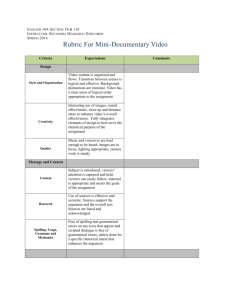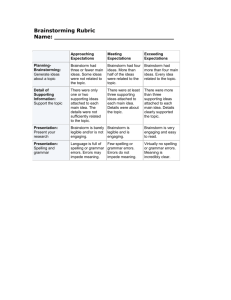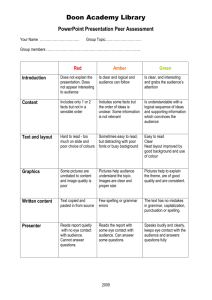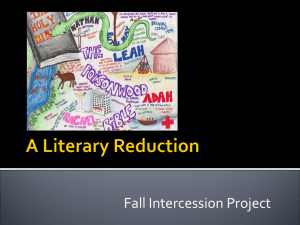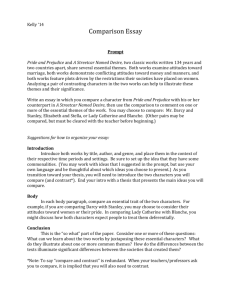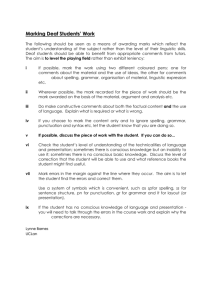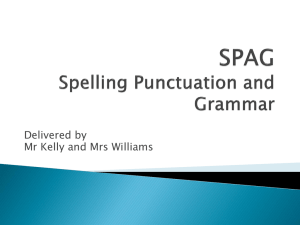ENG 4UI Personal Essay: The Education Debate
advertisement
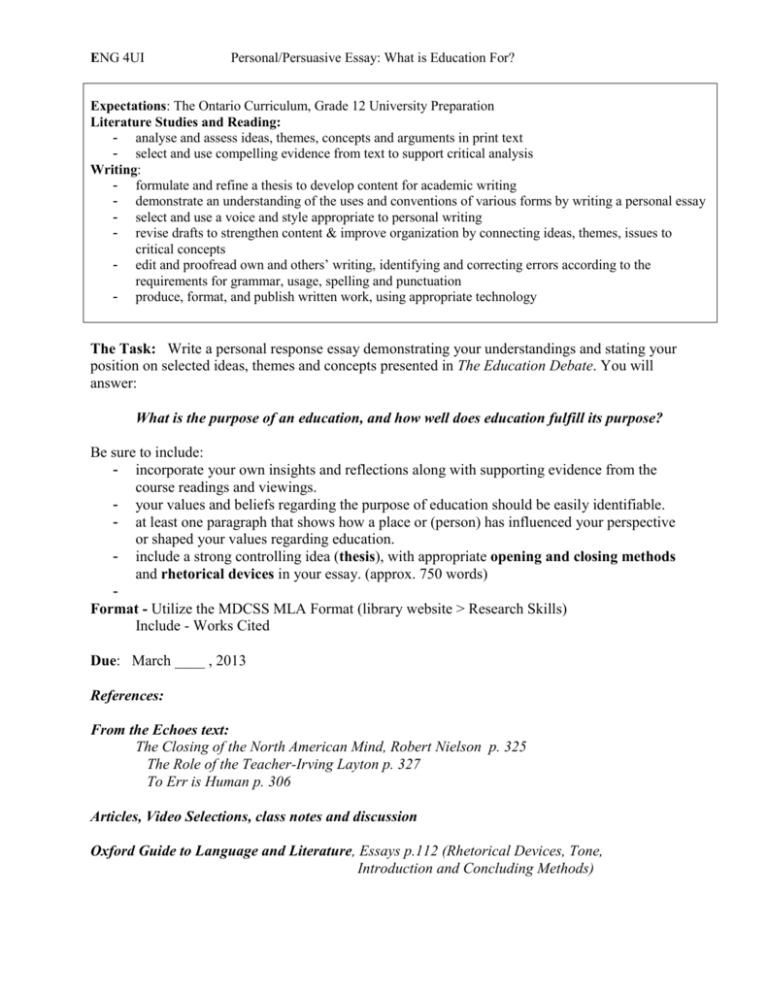
ENG 4UI Personal/Persuasive Essay: What is Education For? Expectations: The Ontario Curriculum, Grade 12 University Preparation Literature Studies and Reading: - analyse and assess ideas, themes, concepts and arguments in print text - select and use compelling evidence from text to support critical analysis Writing: - formulate and refine a thesis to develop content for academic writing - demonstrate an understanding of the uses and conventions of various forms by writing a personal essay - select and use a voice and style appropriate to personal writing - revise drafts to strengthen content & improve organization by connecting ideas, themes, issues to critical concepts - edit and proofread own and others’ writing, identifying and correcting errors according to the requirements for grammar, usage, spelling and punctuation - produce, format, and publish written work, using appropriate technology The Task: Write a personal response essay demonstrating your understandings and stating your position on selected ideas, themes and concepts presented in The Education Debate. You will answer: What is the purpose of an education, and how well does education fulfill its purpose? Be sure to include: - incorporate your own insights and reflections along with supporting evidence from the course readings and viewings. - your values and beliefs regarding the purpose of education should be easily identifiable. - at least one paragraph that shows how a place or (person) has influenced your perspective or shaped your values regarding education. - include a strong controlling idea (thesis), with appropriate opening and closing methods and rhetorical devices in your essay. (approx. 750 words) Format - Utilize the MDCSS MLA Format (library website > Research Skills) Include - Works Cited Due: March ____ , 2013 References: From the Echoes text: The Closing of the North American Mind, Robert Nielson p. 325 The Role of the Teacher-Irving Layton p. 327 To Err is Human p. 306 Articles, Video Selections, class notes and discussion Oxford Guide to Language and Literature, Essays p.112 (Rhetorical Devices, Tone, Introduction and Concluding Methods) Rubric: Categories Level 4 Level 3 Level 2 Level 1 - understanding of ideas, concepts, themes, information - understanding of ideas, concepts, themes, information - understanding of ideas, concepts, themes, information -Critical thinking skills (i.e. analyzing, explaining, assessing, identifying supporting details from multiple perspectives/main ideas) -Critical thinking skills (i.e. analyzing, explaining, assessing, identifying supporting details from multiple perspectives/main ideas) -Critical thinking skills (i.e. analyzing, explaining, assessing, identifying supporting details from multiple perspectives/main ideas) - understanding of ideas, concepts, themes, information -Critical thinking skills (i.e. analyzing, explaining, assessing, identifying supporting details from multiple perspectives/main ideas) - ability to support opinions with supporting quotations/ textual evidence Communication - expression and organization of ideas and information - ability to support opinions with supporting quotations/ textual evidence - expression and organization of ideas and information - ability to support opinions with supporting quotations/ textual evidence - expression and organization of ideas and information - ability to support opinions with supporting quotations/ textual evidence - expression and organization of ideas and information - ability to support opinions with supporting quotations/ textual evidence - expression and organization of ideas and information - use of rhetorical devices - use of rhetorical devices - use of rhetorical devices - use of rhetorical devices - use of rhetorical devices - use of language conventions (style, voice, grammar, spelling,) Application - makes connections within and between various contexts - use of language conventions (style, voice, grammar, spelling,) - makes connections within and between texts with a high degree of effectiveness - use of language conventions (style, voice, grammar, spelling,) - makes connections within and between texts with considerable effectiveness - use of language conventions (style, voice, grammar, spelling,) - makes connections within and between texts with moderate effectiveness - use of language conventions (style, voice, grammar, spelling,) - makes connections within and between texts with limited effectiveness - applies stages of the writing process (brainstorm) and knowledge of Editorial form - applies stages of the writing process (brainstorm) and knowledge of Editorial form with a high degree of effectiveness - applies stages of the writing process (brainstorm) and knowledge of Editorial form with considerable effectiveness - applies stages of the writing process (brainstorm) and knowledge of Editorial form with moderate effectiveness - applies stages of the writing process (brainstorm) and knowledge of Editorial form with limited effectiveness Knowledge/ Understanding - Understanding of ideas, concepts, themes, information Thinking/Inquiry -Critical thinking skills (i.e. analyzing, explaining, assessing, identifying supporting details from multiple perspectives/ main ideas) Demonstrates thorough… Demonstrates considerable… Demonstrates moderate… Demonstrates limited… R/I
